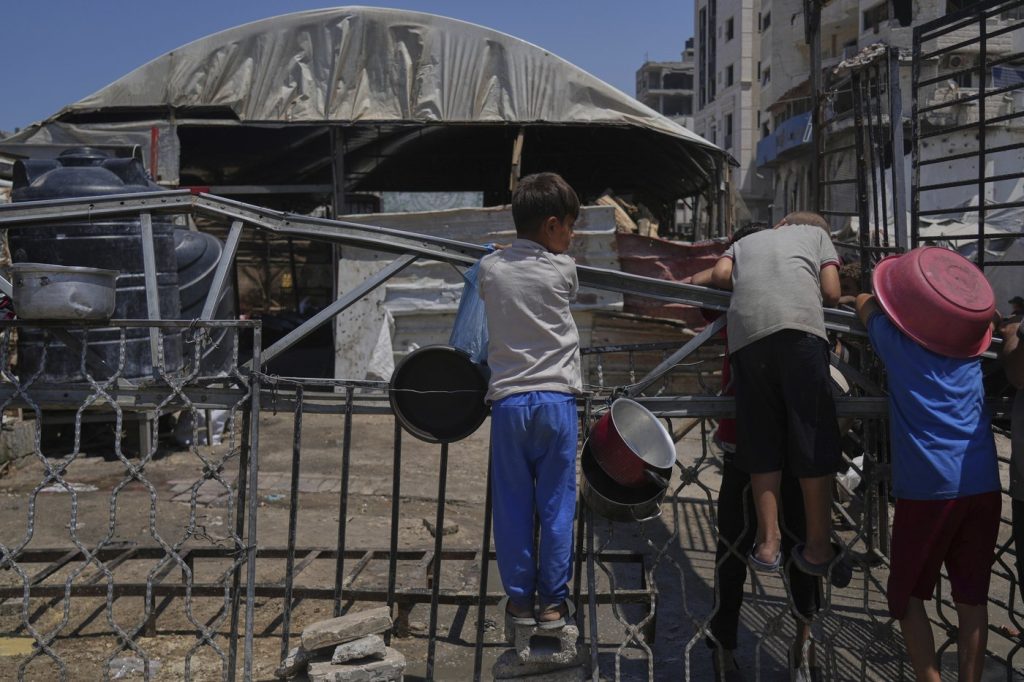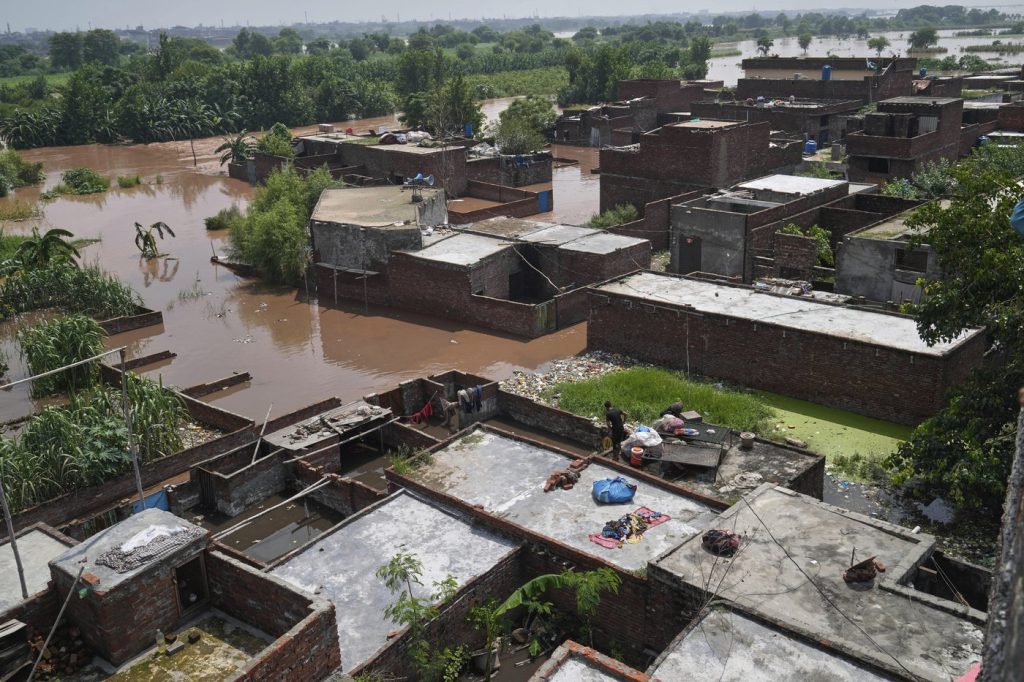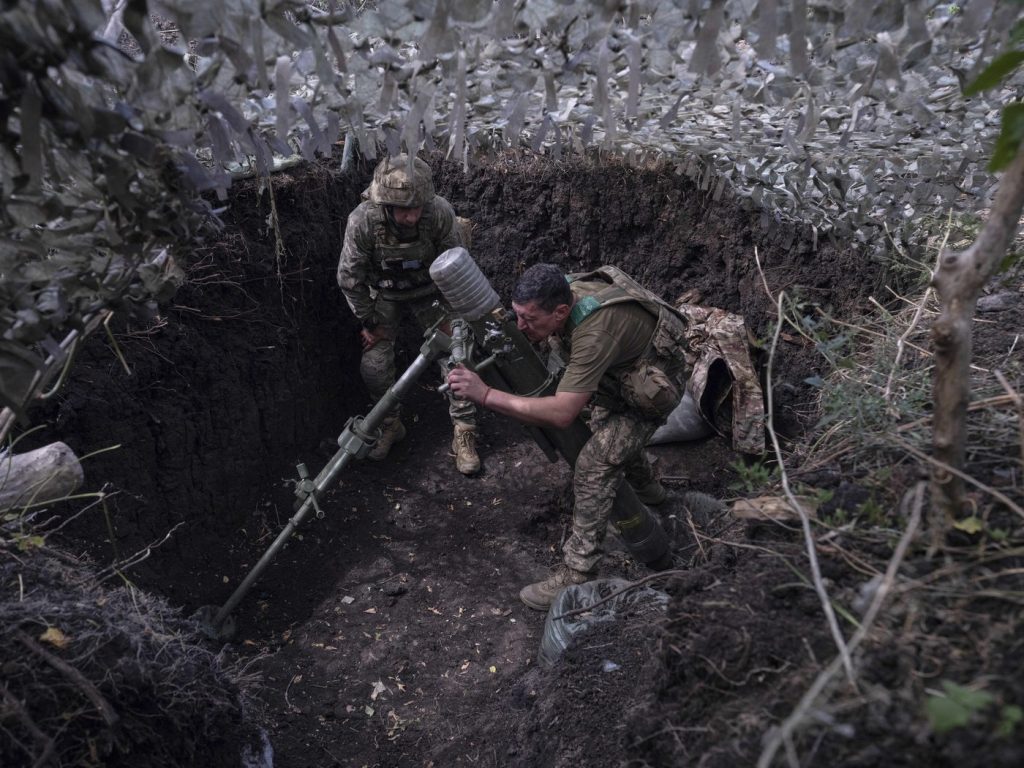TEL AVIV, Israel (AP) — The head of the U.N. food agency highlighted a dire situation in Gaza during her visit this week, stating it was “very evident” that there is a severe food shortage in the Palestinian territory. Cindy McCain, executive director of the World Food Program, engaged in discussions with Israeli Prime Minister Benjamin Netanyahu about the urgent need for increased humanitarian aid. The ongoing conflict has severely affected food availability, contributing to the widespread suffering experienced by families in the region.
According to the world’s leading authority on food crises, the Integrated Food Security Phase Classification (IPC), Gaza's largest city is facing famine, with warnings that conditions could deteriorate across the territory without a ceasefire and an end to restrictions on humanitarian aid. McCain emphasized the stark reality of starvation in Gaza, recounting her interactions with mothers and children who are currently struggling to find adequate nutrition. Despite Netanyahu's previous denials about the existence of famine, he acknowledged concerns over food shortages during their discussion.
Amid increased international pressure on Israel, particularly after the IPC declaration, the Israeli government has stated it plans to seize Gaza City and pursue targeted operations against Hamas. However, there has been no visible progress toward a ceasefire, and Israel formally requested a retraction of the IPC’s famine declaration. The Israeli military agency responsible for humanitarian aid, known as COGAT, reported that over 300 aid trucks enter Gaza daily, primarily carrying food supplies. Nonetheless, aid organizations argue that this amount is insufficient given the prolonged conflict and the blockade earlier this year that hampered food production.
McCain shared insights from her tour of Gaza, where she met families living in tents and facing extreme hunger. One family she encountered had relocated from northern Gaza and expressed dire food shortages, illustrating the broader struggle among displaced residents. While McCain noted that her program is increasing food deliveries to Gaza, she stressed the urgent need for a surge in supply to meet the growing demand.
U.N. Secretary-General Antonio Guterres described the situation in Gaza as “a present-day catastrophe” and warned that the expansion of Israeli military operations could generate devastating consequences, forcing hundreds of thousands of civilians to flee their homes yet again. He condemned the crisis, citing the destruction prevalent in Gaza, with “piles of rubble and bodies” and potential violations of international law evident throughout the territory.
In parallel developments, mediators from Egypt and Qatar await Israel’s response to a proposed 60-day ceasefire, which has garnered acceptance from Hamas. The proposal stipulates a ceasefire in exchange for the release of hostages and a withdrawal of Israeli forces to create a buffer zone in Gaza. Additionally, Israeli airstrikes targeted the Yemeni capital of Sanaa in response to ongoing threats from Houthi rebels, who have been launching missiles and drones toward Israel as a show of solidarity with the Palestinian cause.
As the situation continues to evolve, nearly 63,000 lives have been claimed in Gaza since the onset of conflict, according to reports from the Palestinian Health Ministry, which cites that over half of the deceased are women and children. The agency, linked to the Hamas-run government, is considered the most credible source on casualties despite Israel’s disputes regarding their accuracy. The conflict first erupted following a violent October 7, 2023, attack by Hamas, resulting in significant fatalities and numerous abductions. The international community remains watchful of Israel’s obligations as an occupying power to protect civilians and expand humanitarian access during this ongoing crisis.












